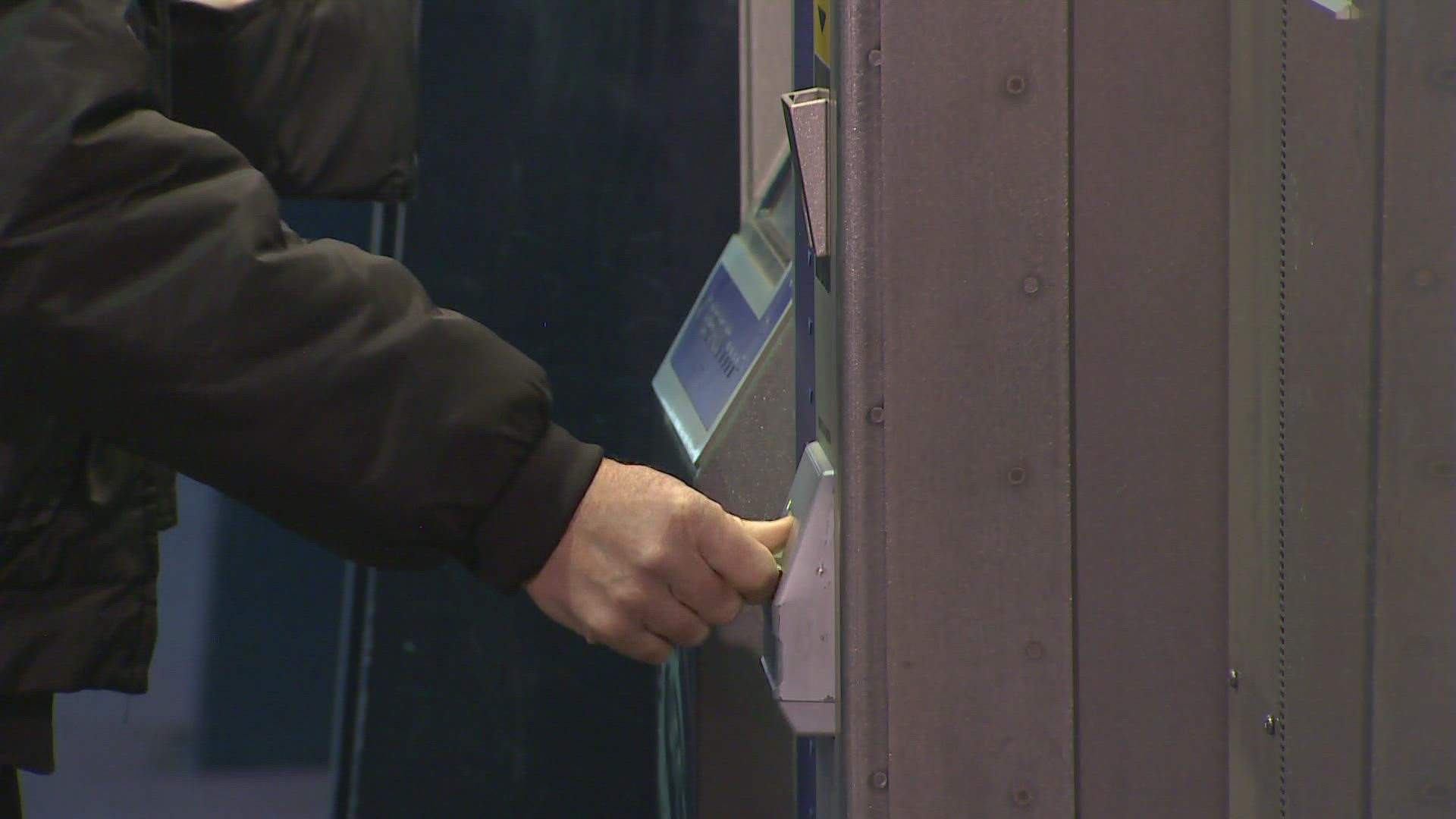SEATTLE — Abdullah-Z'Heir Khali takes Link light rail to go to work as a health and wellness provider and gets on at the stop in SoDo, in Seattle.
He pays his fare now, but that wasn't always the case in the past.
"There were some days I could not pay," Khali said.
He said growing up in a low-income household made him aware that not everyone can afford the fare, especially during COVID-19 times.
"There's a lot of other places that people want to put their money during a pandemic, so I can see if there's not a lot of enforcement here, people can easily save pennies there," Khali said.
Sound Transit CEO Peter Rogoff is aware of what is going on.
"We've got a fare compliance problem that we need to get our arms around," Rogoff told KING 5.
On Thursday, during the Sound Transit Board of Directors meeting, Rogoff presented recommendations to address a significant decline in fare revenue, which he attributed to low ridership during the pandemic and an increasing number of people who are riding without paying the fare.
Part of his plan is to lower costs for low-income passengers and make those who can afford the regular fares, to pay their way.
Rogoff noted that fare non-compliance is not limited to one group or community.
"Back in the fall when the Mariners were making a run for the playoffs, I went to a number of the games. Folks were paying $60, $80 to $100 for a seat, they're paying $13 a pop for a beer, and they came down to Stadium station and they weren't tapping on and they weren't buying tickets. We need to reverse that," Rogoff said.
In 2021, Link fare covered 5 percent of operating costs, according to data provided by Sound Transit. That's down from 32 percent in 2019, before the onset of the pandemic.
Total fare revenue from light rail, express bus and Sounder, dropped from about $100 million in 2019 to $30 million in 2020, according to the data.
A painful cut, but one that Rogoff said won't lead to insolvency.
"What it will endanger is how quickly we can deliver the capital projects that we promised to the voters in 2016," Rogoff said.
Those include projects like the light rail extensions to Tacoma and Everett, and later, to West Seattle and Ballard.
He said should declining fare revenue persist, Sound Transit may possibly have to look toward other forms of revenue.
"The only other alternative is to push some of those costs to the general taxpayer, which we do not want to do," Rogoff said.
His proposals to the board include increasing the number of "fare ambassadors" to check that riders pay.
Rogoff also wants to make the fare process more equitable by letting more low-income riders know they are eligible for paying less via the ORCA Lift program.

